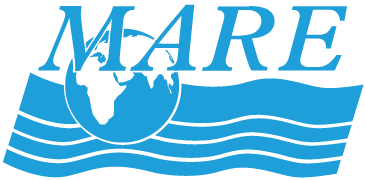Communicating Ocean Sciences to Informal Audiences (COSIA)
Prepare future scientists (undergraduate & graduate students) to communicate their science knowledge more effectively to the public and other diverse audiences
COSIA (Communicating Ocean Sciences to Informal Audiences) is a university-level course for undergraduate and graduate students in science-related majors. The course has been successfully implemented at more than 25 colleges and universities, including at UC Berkeley, where since 2007 it has served ~500 students (as of 2019).The course design is based on current research and theory on learning and teaching, and the rigorous development process it underwent is one that all curriculum and professional learning programs from the Lawrence Hall of Science, UC Berkeley follow.
The course is team-taught by a scientist and an informal educator, and students have the opportunity to communicate their scientific knowledge in informal science institutions, such as science centers and aquariums. As they teach the course, scientists are challenged to reflect upon how they teach in other courses, and in most cases, they change their practices to incorporate ideas (pedagogy and practices) presented in the COSIA courses. Halversen, C. & Tran, L.U. (2010). Communicating Ocean Sciences to Informal Audiences: A scientist-educator partnership to prepare the next generation of scientists. The New Educator. details the outcomes for scientists, students, and informal educators.
Goals of the Course
- Introduce undergraduate and graduate students—future scientists—to the importance of education, outreach, and the broader impact of ocean sciences research.
- Improve the ability of the faculty teaching the COSIA course to communicate scientific concepts and research to their undergraduate students.
- Provide both graduate and undergraduate students, and science faculty with direct experience using exemplary, research-based instructional materials that model effective pedagogy and practices based on how people learn.
- Promote thoughtful, mutually beneficial collaborations between scientists and educators as they co-teach the course.
- Provide visitors to informal science institutions with significant ocean sciences instruction and college and university role models.
Awards & Recognition
In 2005, Communicating Ocean Sciences and Communicating Chemistry/Physics/Astronomy received the prestigious Educational Initiatives Award from the University of California, Berkeley, which is presented annually to a department or unit on the Berkeley campus in recognition of distinctive contributions to undergraduate education.
In 2010, the Communicating Ocean Sciences course was considered to be one of the most important and effective programs or products to come out of the NSF-funded COSEE (Centers for Ocean Sciences Education Excellence) efforts. The goal of the 12 COSEE Centers located throughout the US was to connect ocean scientists and educators to promote ocean literacy nationwide. Each Center was a consortium of one or more ocean science research institutions, informal science education institutions, and formal education entities.
We would like to thank the National Science Foundation for making this project possible through funding under Grants #ESI-0540417 and #DRL-0917614.
Download Course Sessions and Outreach Activities.
Halversen, Catherine & Tran, Lynn Uyen (2010). Communicating Ocean Sciences to Informal Audiences: A Scientist-Educator Partnership to Prepare the Next Generation of Scientists [The New Educator]
Related Content
MARE has programs and projects for informal educators to share and reflect on their teaching practice in informal science environments. Learn more about Informal Educators and Institutions.

